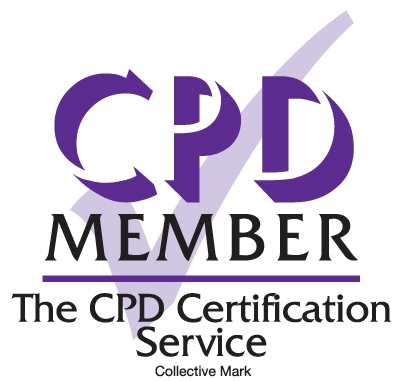| SHARE THIS ARTICLE ON SOCIAL |
| Marketing Insights - | Reading Time: 5mins |
The Rise of the New Client Ecosystem
...
Specific impacts of the COVID 19 pandemic on the Insurance Customer
Customer Management Impacts
- Changes in call center operations, through reduced staffing, social distancing or remote work, have created challenges in maintaining service levels.
- Increased call volumes from customers, particularly existing customers who want to understand policy coverage, or those with ongoing claims, have affected service levels.
- Increase in complaints: Several factors could be causing this, such as dissatisfied customers with the policy coverage, claims management and service levels.
- Collateral risk of reputational damage due to the client’s lack of understanding of their existing policies.
- Cross-selling and up-selling to existing customers may not be appropriate at this time and, if offered, are likely to cause dissatisfaction.
- Drop in persistence rates due to economic problems and lack of financing.
Un estudio reciente de MacKinsey, señala que products need to be simplified, transparency and product information need to be improved, and experts must often provide tailored advice to help customers navigate the plethora of options and trade-offs. Insurers largely assume that personal advice must be delivered in person for it to be effective. (McKibnsey&Co, 2020)
In the new technology-based ecosystem of interrelationships, there are many opportunities to demonstrate excellent service, managing individual customer situations with empathy and integrity, especially when customers show vulnerabilities. But also in a compensation approach based on persistence bonuses of client portfolios
The main trends in Client Management are the following:
- Directing customers to online engagement channels, for example, webchat or chatbots, is relieving pressure on contact center operations for some companies. Some contact centers are careful to ensure that digital channels, particularly automated technology, are configured to provide brand-consistent service.
- If it is decided to phase out cross-selling and up-selling activities for products like travel, they are carried out quickly and with existing policyholders in mind.
- As the focus on cross-selling and reselling diminishes, some companies are re-evaluating the composition systems of their agents and representatives, reconfiguring the bias in portfolio maintenance and persistence.
- Development of clear guidelines for customer engagement: proactive, reactive, and to manage dissatisfaction.
- Increased proactive communications with clients, with clear messages for clients to set expectations around service levels, reassure and report on product coverage (including relevant temporary extensions to cover e.g. work from home, use your own vehicle) and reiterate important contact information.
- Training of career maintenance paid sales agents and front-line customer service agents to demonstrate excellent service to each and every customer, thereby sustaining persistence.
- Close monitoring of customer feedback metrics (eg NPS –Net Promoter Score- transactional, CSAT –Customer Satisfaction Score) and be prepared to implement any necessary changes in guidelines to mitigate problems.
Policy Administration Impacts
- Increased operating pressures have affected insurers’ ability to meet their target service levels, with much longer wait times for clients. This has been particularly evident where there is a lack of digital capabilities.
- There has been a sudden need to temporarily modify policies on a large scale, with a significant increase in the number of policyholders who work from home and from businesses that are reducing their activities to a minimum level.
- A significant proportion of clients are or will become vulnerable, either temporarily or in the long term, as a result of the financial and health impacts of current national restrictions and the virus itself.
- Clients and brokers are demanding flexibility in the renewal process and the contractual terms to renew.
Despite the impacts on policy administration, the new client-centric ecosystem is being characterized by a new treatment of vulnerable clients, in addition to the reallocation of resources from non-critical areas to support those parts of the company that are under pressure, and increasing work-from-home skills and support for all customer service staff when possible.
Some trends in this are:
- Work with business clients to ensure that special terms and coverage changes that are temporarily closed for business can be applied with a minimum of hassle, or waiving the requirement to apply them as a temporary measure.
- Allow premium non-payment terms for clients facing financial difficulties as a result of short-term impact;
- Suspension of processes that lead to automatic termination of coverage, particularly in view of the challenges that clients and brokers may have when trying to communicate with insurers;
- Relaxing conditions where compliance is difficult during CV-19 restrictions (the UK industry decision to relax the requirements around MOT certificates, in line with legislative changes to allow for this, is a good example of this flexibility ).
- Communication with brokers to agree on how renewals will be handled, as more time may be required to answer and follow up on questions; This could also mean providing short extensions to allow it (this also applies to the next point, regarding vulnerable clients: During this high stress period, there must be flexibility to ensure that clients can make clear decisions about ongoing coverage). Some insurers have been proactive in communicating with brokers on this issue, providing clarity on coverage extensions prior to the renewal of business schemes.
- Review and implementation of measures for vulnerable clients, to ensure that this segment is identified and that they are given adequate support and clear information on how their insurance is administered.
- Elimination of the requirements to notify certain changes: In the UK, the ABI has announced a series of measures that its car and home insurers have committed to take to help customers during the crisis. These include removing the requirements to notify about work from home, or a new requirement to drive to work due to COVID-19, ensuring that coverage is not affected for those who act as volunteer NHS workers, or as a result of having to drive to different locations as a key worker.
Claim managements impacts
The industry is experiencing an increase in claims for interruption in life, health, general, travel and business insurance conditions, which, together with the need to move staff from offices to work from home, is putting pressure significant impact on claims operations.
- A notable reduction is being observed in claims in various branches, in automobiles for example, due to the decrease in road activity, the impact of costs in other areas will be offset. However, volumes may rise above normal levels after restrictions are lifted, if fuel costs remain low.
- Operational challenges will compound the impact of recent Covid-19 surge activity, particularly those related to recent weather events in some parts of the world.
- Immediate logistical challenges have been seen as claims adjusters are unable to attend sites where clients are isolated by quarantine or security.
- The impact on the supply chain can create challenges in complying with claims within normal time frames (for example, downsizing in repair shops, possibility of stricter restrictions affecting property damage restoration work, etc.) and insurers must work closely and flexibly with providers.
- There is some increase in disputes and litigation regarding pandemic coverage, particularly when there is some ambiguity in the wording of the policy.
- There has been an increase in fraudulent activity, where the industry is known to be adapting to new operational challenges in Claims.
Finally, the ecosystem that is emerging after the Covid 19 crisis includes Claim management as a fundamental point in the location of the client as a central focus, since it directly impacts the reputation and brand of insurance companies.
Some of the trends observed at the international level on this subject are the following:
- Review and implement plans to relieve pressure on front-line staff and manage customer expectations.
- Flexibility of capacity FNOL (First Notice of Loss), p. temporarily aligning auto claims staff to manage the surge in new travel claims.
- Engaging third-party technology providers, claims adjusters, and existing vendors to understand how proposals can provide a short-term solution to current challenges and support greater operational resilience.
- Updated faster settlement processes for simple claims (self-service route when possible) and increased authority limits for claims handlers and loss adjusters. The need for updated controls is expected to increase by 2021, to reduce the potential risk of fraud.
- Extension of specific periods for certain products, for example, for temporary vehicle replacement and alternative accommodation when vehicle and property repairs are taking longer than normal to complete.
If you found this article helpful and informative, please feel free to share it with your associates.
| SHARE THIS ARTICLE |
Find out more
Whether you’re an individual looking for a training course to upgrade your skills or a company in need of an in-depth consultancy to identify corporate pain points, iPi can help. Add your details below and iPi will make contact to discuss your requirements.
AA
CPD certified leadership and management courses
Upgrade your leadership and management knowledge by taking one of our interactive on-line courses.
Business management courses are a great way of refreshing the key skills you need to effectively manage teams. Receive professional recognition after completing the course.
CPD Certified Leadership and Management Courses

















